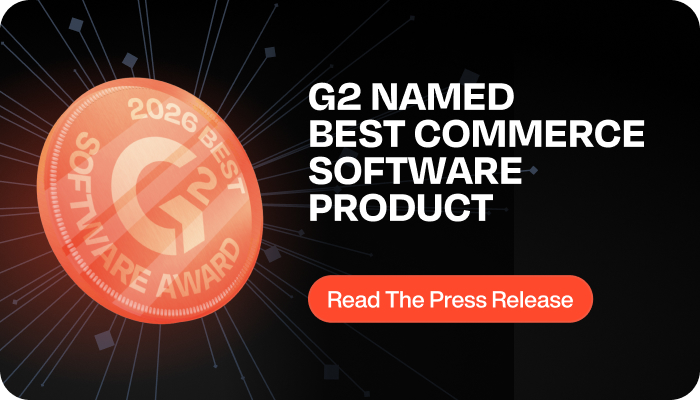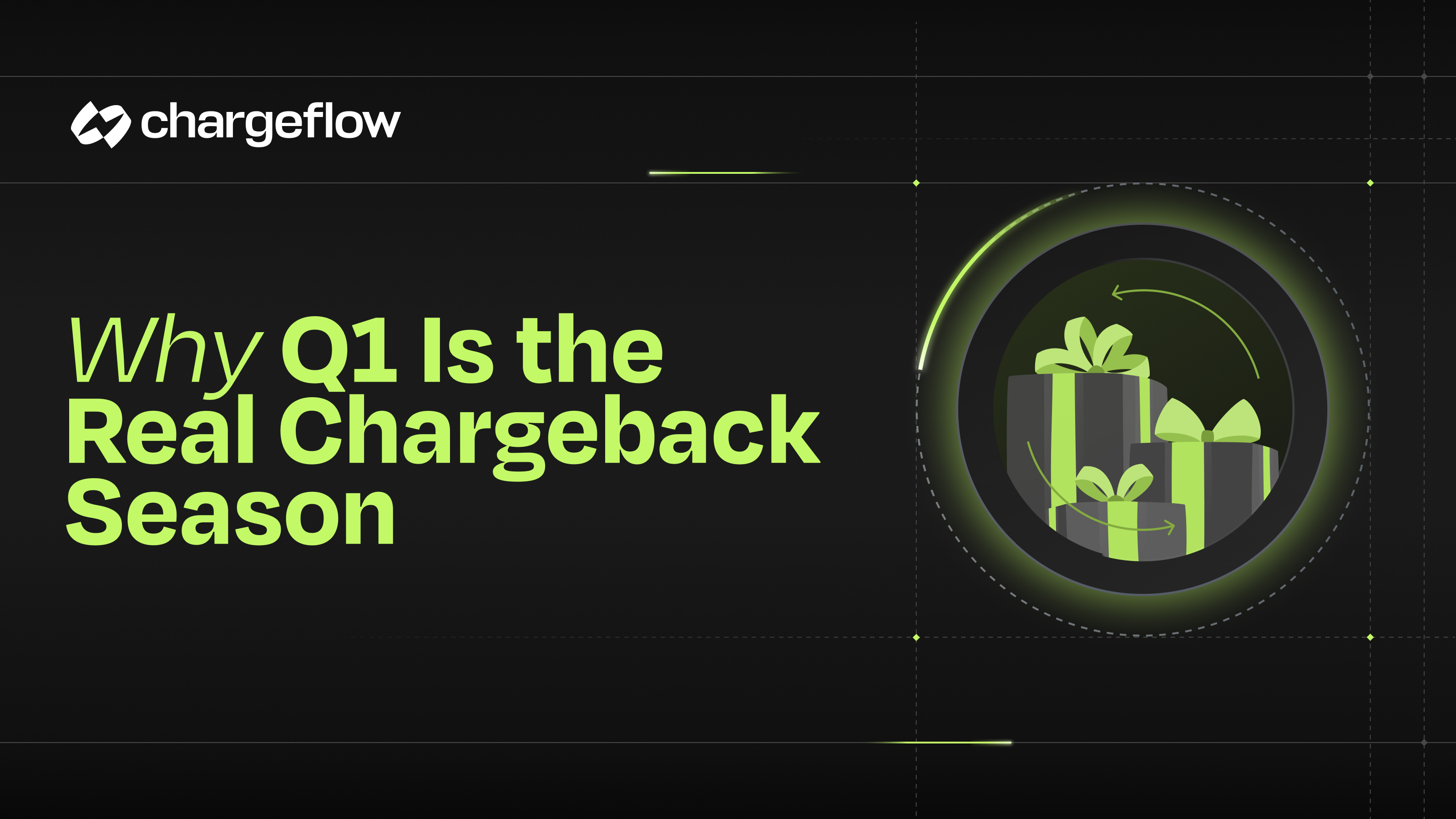Chargeback Insurance: Do You Need One for Your Store?

Chargebacks?
No longer your problem.
Recover 4x more chargebacks and prevent up to 90% of incoming ones, powered by AI and a global network of 15,000 merchants.
Unsure about chargeback insurance? Discover if it's the right solution for your business. Avoid losses and gain peace of mind with our expert insights.
In today's digitally-driven world, where payment scams are commonplace, the negative impact of chargebacks on businesses is well known.
They damage your reputation, drive away prospective customers, eat into your profits, affect your relationship with regulators…the list goes on.
But have you ever wondered if you need chargeback insurance to protect your business? In this insightful piece, we'll review the practicalities of chargeback insurance. We’ll examine the merits and demerits and determine if a chargeback management service might be a more viable solution for your store. With that precise knowledge, you can make well-informed decisions to protect your business's financial health and long-term viability.
What is Chargeback Insurance?
Chargeback insurance is a financial protection mechanism designed to safeguard businesses from the detrimental impacts of excessive chargebacks. Essentially, this specialized coverage reimburses merchants for losses incurred whenever a buyer initiates a chargeback, including the cost of the lost item or the loss of profit.
All things being equal, chargeback insurance is a raincoat for chargeback rainy days – helping businesses mitigate online payment risks. It provides financial protection and support in handling the complexities of the chargeback process.
Nevertheless, chargeback insurance is NOT a silver bullet. The terms of service might require that you pay a premium (and potentially deductible amounts) to the insurance provider. Policies vary and may also have limitations on coverage, including maximum payout amounts, specific chargebacks covered, or exclusions for certain circumstances.

Pros & Cons of Chargeback Insurance
Before opting for chargeback insurance, it's crucial that you carefully examine specific needs and understand the terms of service. Here are some (non-conclusive) merits and demerits to help you make the right choice for your business.
Pros of Chargeback Insurance
- Financial Protection: As noted earlier, chargeback insurance shields merchants from the direct economic impact of chargebacks, covering refunded amounts, chargeback fees, and associated costs.
- Risk Mitigation: The insurance helps mitigate risks associated with fraudulent transactions, unauthorized purchases, and disputes, allowing merchants to focus on core business activities.
- Cash Flow Management: Chargeback insurance provides a buffer for maintaining stable cash flow by covering chargeback costs while awaiting dispute resolutions.
- Peace of Mind: Merchants benefit from peace of mind, knowing insurance coverage is in place, reducing constant worry about the financial repercussions of chargebacks.
- Reputation Protection: Efficiently handling chargebacks with insurance support protects a merchant's reputation, enhancing customer trust and satisfaction.
Cons of Chargeback Insurance
- Costs: Chargeback insurance attracts expenses, such as premiums and potentially deductible amounts.
- Claim Process Complexity: Filing a claim and receiving reimbursement can be complex. Merchants may need to provide detailed documentation and evidence and follow specific procedures to qualify for coverage. Delays in the claims process can impact cash flow.
- Coverage Limitations: Policies may have coverage limitations, including maximum payout amounts, specific types of chargebacks covered, or exclusions for certain circumstances.
- Exclusions and Conditions: Chargeback insurance policies may have various exclusions and conditions. For example, they might only cover chargebacks related to certain products or services, transactions with proper documentation, or situations where the merchant is at fault.
- Impact on Premiums: If a merchant experiences frequent chargebacks, it may lead to increased premiums or a reassessment of their risk profile by the insurance provider. This could result in higher costs over time.
Many merchants erroneously assume they have complete coverage from fraudulent chargebacks, but they don't, as we'll find out shortly.

How Chargeback Insurance Works: When the Policy Applies and When it Doesn't
Like most standard insurance policy, chargeback insurance protects merchants against fraud. There are four notable scenarios when chargeback insurance applies:
- Unauthorized transactions or purchases made using stolen credit cards.
- Transactions made with a fraudulent or phony credit card and account number.
- A scammer edited/altered order shipping details after the fact.
- The signature obtained was invalid, or the buyer did not supply their signature for the transaction.
You can seek reimbursement for the disputed charge if any of the above incidents happen. Compensation can include the cost of the goods sold and any lost revenue due to the chargeback.
That's not automatic, though. As noted earlier, the policy you took determines the extent of protection and reimbursement you can expect. Even with the best coverage, your provider will still expect you to take precautionary measures to prevent fraud.
When does chargeback insurance not apply?
Chargeback insurance does not cover friendly fraud or intentional abuse of the chargeback system. Also, if your chargeback ratio is already more than 0.9 to 1%, it might be challenging to get any coverage at all. Yet, merchants using Chargeflow to automate and streamline chargeback management processes benefit significantly through a simplified end-to-end workflow. That also enhances the overall customer experience while ensuring accountability for the entire ecosystem.
Chargeback Management Service: A Better Alternative?
The principle of having a form of buffer against chargeback fraud is sound. It's a viable option. Unfortunately, the limitations of chargeback insurance (in terms of the practical application) often outweigh the benefits.
That’s why merchants choose chargeback management services as an excellent way to prevent chargeback losses and stop fraud attempts from online shoplifters. Chargeback management service uses advanced technologies and expertise to identify and prevent potential chargebacks before they happen. It also helps businesses dispute and win chargebacks if they do occur.
One of the main benefits of using a chargeback management service is reducing the number of chargebacks. Tools like chargeback alerts flag impending cases. That helps you save money and avoid damaging their reputation. And when it comes to disputing cases, it enables you to excavate compelling evidence and submit disputes on time.
Another advantage of using a chargeback management service is the ease of use. You do not need to invest in expensive equipment or hire additional staff to manage chargebacks. The service takes care of everything, allowing you to focus on other aspects of operations.
Compared to chargeback insurance, chargeback management service is a more reliable solution. Chargeback insurance has limitations and exclusions that may prevent you from being fully covered. Additionally, the cost of chargeback insurance can be high, and the coverage may not insulate you from all chargeback-related costs.

Final Thoughts on Chargeback Insurance
In conclusion, chargeback insurance is a helpful tool for online store owners to avoid some losses due to disputed purchases. Yet, before jumping onto the bandwagon, it’s essential to weigh the pros and cons. Chargeback insurance does not guarantee complete chargeback protection for your business.
Assuming otherwise will only hurt your business. And you can easily find better solutions that fit your needs. Chargeflow is one such option. Its seamless automation makes dealing with chargebacks effortless.
From advanced techniques to preventing chargebacks before they become chargebacks, Chargeflow has every feature to boost your store's defense system. Check out Chargeflow today and seize this excellent opportunity to kick chargebacks out of your business!

Chargebacks?
No longer your problem.
Recover 4x more chargebacks and prevent up to 90% of incoming ones, powered by AI and a global network of 15,000 merchants.
















































.png)








